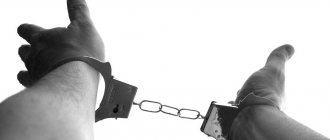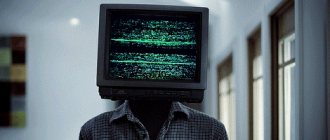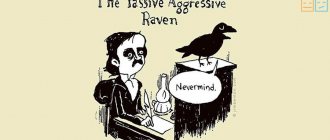The inner world is a concept that was originally used to designate a part of the living space that reflects the mental sphere. At the moment, the division into the inner world of the individual and the external in the scientific understanding is no longer carried out, although the phrase continues to be used synonymously with the concept of the mental. Of all the spectrums of possible manifestations of the psyche, the inner world reflects a state of peace and tranquility, a certain goodness and satisfaction.
The inner world is a representation of a certain reality, formed through the interaction of neurons and at the same time representing mental images about the world, one’s personality and the structure of this same inner world. It is different for each individual and is presented in a single unique variant, formed in a combination of factors of heredity, developmental characteristics, inherent abilities and acquired interests, type of nervous system and characterological characteristics. Further, with age, the formation of a specific internal structure is influenced by life experience, accepted social values, ideals that are a deep reflection of a person, and archetypal images.
Each of the presented human sense organs reacts in a specific way and brings its own individual information; accordingly, the inner world of different people is capable of being painted in different shades even under the same conditions. In this case, the function of reproducing what is received from the outside does not exist, as happens with dreams, but only a process of direct response to what is happening in reality occurs.
What is the inner world of a person
The inner world of a person is formed through direct interaction and establishing connections with society, and is part of consciousness. This is a structure of the psyche engaged in the processing of perception processes and further exteriorization in the processes of external activity (actions, behavior). It is through the external embodiment of internal and invisible work that we can judge the diversity, development and semantic content of the spiritual world, the components of which are psychology, values, personality (internal characteristics), intelligence, behavior. The activity of these components can be manifested with different strengths at different time periods, while the presence and development of each component changes when conditions change. When one will be in the shadow of the unconscious, and the other, on the contrary, will be brightly illuminated by conscious attention. From this interaction and fullness follow such characteristics of the inner world as its richness, harmony, depth, complexity and others.
Usually, a person is not able to completely control his inner world, as well as emotional manifestations, because he is not something effective, but only reacts to external changes. From this provision it follows that the inner world regulates the social society surrounding the individual and external conditions. However, for people who are more focused on their condition than on external events, the ability to control the processes of the inner world becomes simpler and more accessible.
Using an understanding of your inner world for a more successful and harmonious life is an undeniable truth, but at the moment no objective methods of knowledge have been developed. From the work done, phenomenological analyzes are of interest, representing the possibility of considering the individuality of the manifestation of the specificity of parts of the inner world, however, this does not give the right to extend these patterns to all people. Each reaction, each reflection of external events by the internal mirror is a characteristic fixed in space and time, which will change when any of the parameters changes.
Being a reflection of the external, the internal world is not a copy, otherwise it would be the same for everyone. It is initially subjective and refracts the displayed reality through its own filters. A rough metaphor for comparison would be a room of crooked mirrors, where, depending on the mirror, your image changes, but there is no copy of you. Also, several different people reflect each aspect of reality in completely different ways, putting all the resulting images into a multidimensional picture that has hundreds of differences from the other.
In the Kiev Pechersk Lavra
However, the enemy of the human race rose up against him through some members of the Lavra brethren, slandering the Hierarchy. Some influential persons from the old brethren, not understanding the way of thinking and spirit of the elder, out of envy, reported to the governor of the Lavra, Archimandrite Jacob (Panchuk), that Isaiah surrounded himself with young people who went to his cell, doing who knows what. The authorities and the KGB did not allow him to be registered, and not many could carry out the prayer work that he brought to the monastery. Father complacently endured the slander, unconditionally forgiving those who, in their foolishness, persecuted him, and praying for them. At the end of the 70s, the “inconvenient” priest, who always spoke the hard truth and was never registered among the brethren, was removed from the monastery. The Providence of God is seen in this, for, being constantly in one place, he could preach and teach smart work to only relatively few people, and the geography of his activity was extensive: practically the entire Orthodox space of the former Soviet Union, all twelve monasteries, where alternately, with greater or lesser duration he remained. A spiritual council was held in the Lavra, at which it was decided that Father Isaiah should be committed to a mental hospital.
Having listened to the advice of Fr. Ignatius (Dzyubanin), he decided to leave. In the evening, a car came for him, which took him to the Intercession Monastery in Kiev, where for some time he was given shelter with Abbess Margarita (Zyukina), a native of the Kursk region, who, together with her sister and mother, went on pilgrimage to the Glinsk hermitage as a child. Having a spiritual father in the person of the ever-memorable Schema-Archimandrite Seraphim (Romantsov), she received the disgraced elder, providing him with a tiny cell. The spiritual children of the Glinsky elders were the late Mother Victorina, Nina, Eupraxia, who were originally from the Kursk region. One of Father Isaiah’s tonsure recalls: “In the winter at the end of the 70s, when Fr. Isaiah was expelled from the Pochaev Lavra by the authorities, and he came to Kyiv. Near the Intercession Monastery the police wanted to take him away. The “funnel” had already arrived, and they wanted to drag the elder into the car, but in the literal sense of the word, Abbess Margarita and her sister Schema-nun Eupraxia physically defended him, snatching him from the hands of the persecutors.” Holy Intercession Monastery in Kyiv
Schema-Archimandrite Theophilus
He could not stand hegumen Paphnutius (schema-archimandrite Theophilos), who even had to hide when the former metropolitan visited the Lavra. Father Isaiah was blessed by the obedience of the rummage man (the manager of things in the warehouse) and the choirboy. In addition, he confessed to numerous pilgrims and parishioners, of whom he always had many. He often carried out reprimands (proofreadings), however, unlike Schema-Archimandrite Theophilus, he did this individually, believing that group proofreadings only tease the demons who continue to torment people possessed by evil spirits. In post-Soviet times, in particular, when changes were made to the prayer of the holy martyr Cyprian, he did not give his blessing to read it. On this issue, he had disagreements even with his brother in the Kiev-Pechersk Lavra, Abbot Paphnutius (in the schema of Theophilus, + 03/22/1996). He believed that since ancient prayers had been used for many generations with positive results, nothing needed to be changed.
“Don’t judge anyone, endure everything, pray unceasingly, fight your thoughts, don’t sin—thank God for everything”—the main commandments of the priest. An old man lived in building 50 on the 2nd floor. On October 28, 1988, the abbot of the Lavra, then still Archimandrite Jonathan (Eletsky), performed the first monastic tonsure at the monastery.
The first tonsures of the revived monastery were Priest John Novitsky, who received the name of St. Anthony of Pechersk, and the future abbot of the Holy Vvedensky Monastery, in the world Oleg Davydov - with the name of St. Damian the Healer. Five novices were tonsured into monasticism. Abbot Isaiah became the spiritual successor of the newly tonsured monks.
Having noticed among the numerous visitors to the Lavra the young Soviet journalist Sergius Geruk, who did not yet have the slightest idea about the Church, Father Isaiah was able to see in him rich spiritual potential and blessed him to work for the good of the Church. Thus, Sergius Geruk became the first Orthodox journalist in Ukraine in the post-Soviet period. In the article “At the Origins of the Orthodox Press” (www.pravoslavie.ru/press/5014.htm) Geruk writes: “In the mid-1980s, I, then a young Soviet journalist, working as a special correspondent for the republican military-patriotic newspaper “Patriot of Batkivshchyny”, I began to attend Orthodox services, discovering a hitherto unknown world of Orthodoxy. And when in 1988, near the Far Caves of the Kiev Pechersk Lavra, monastic figures in black hoods appeared and prayer chants began to sound, it seemed that time had thrown me back centuries. I remember how the gray-haired abbot Isaiah (Karavai), a tonsure monk at the Lavra before its closure in 1961, came up to me at the service and asked if I wanted to confess. Having learned about my profession, he somehow cheerfully said: “Why are you hiding? We need to write about the Church, tell the truth about it. And now is the right time for this. Here, interview our viceroy, Archimandrite Jonathan.” This is how my first publication on a church topic appeared, and my first acquaintance with the abbot of an Orthodox monastery took place. I became a parishioner of the Lavra and became close friends with many of its inhabitants. Soon, Archimandrite Jonathan (Eletskikh) was elevated to the rank of bishop and appointed vicar of Exarch Philaret. It was then that he suggested that I organize the editorial office of an Orthodox newspaper. It was not easy to decide on this: organizing the publishing process is not an easy matter, and journalists still needed to be found, and most importantly, it was necessary to break forever with secular (then Soviet) journalism.”
Who knows, perhaps it was through the prayerful intercession of the elder that the literary fate of the Orthodox journalist Sergius Geruk took shape...
According to the memoirs of the then young hieromonk Nikon (Rusin), Father Isaiah practically taught young monks the Jesus Prayer and confessed their thoughts. At the beginning of perestroika, when books about the Jesus Prayer, in particular the Philokalia, were worth their weight in gold (the pre-revolutionary five-volume set of the Philokalia cost 1,000 rubles), the elder’s living example and practical experience were unique. The future Archimandrite Nikon regrets that this time was fleeting, and the youth did not have time to fully adopt the precious experience. How many human destinies have changed thanks to communication with the elder! For this, the enemy of the human race took revenge on him, raising the most severe abuse. At first, having learned the elder’s biography, the governor was favorable to him, but after some time a stormy scandal occurred, and after an akathist in the fall of 1988, the father governor, unable to restrain himself, shouted at Father Isaiah in front of everyone. He, maintaining restraint, asked: “Should I leave?”, to which the governor replied: “Yes, I’m not keeping you.” Apparently, a significant role in fueling the scandal was played by the anger of the then Primate of the Church, who received the impartial words of the elder, who, according to the testimony of the aforementioned Sergius Geruk, condemned the activities of Filaret’s “sister” Evgenia Petrovna Rodionova, who has the “invisible eye” and was nicknamed “the mistress of all Ukraine.” ”, about which the elder once half-jokingly quietly said: “If someone managed to remove her from the Church, he would immediately secure for himself the Kingdom of Heaven.”
Is it any wonder that after these words, Father Isaiah once again lost his home? Gathering his simple belongings and folding his hands, as usual, crosswise on his chest, he thanked the Lord with the words “Glory to God for everything,” bowed to the holy monastery and left at the invitation of Archbishop (future schema-metropolitan) Juvenaliy (Tarasov) for Kursk. It was at this time that the authorities decided to restore the Kursk Root Hermitage, of which he became the first rector according to the Determination of the Holy Synod. On August 15, the first service took place on the site where the Church of the Blessed Virgin Mary stood before the 1917 revolution. These were unforgettable, blessed, but also extremely dramatic times. Enormous problems met the first abbot of the revived monastery. There were many civilians living on the territory of the monastery who did not want to liberate the monastic buildings. They took up arms against the governor, trying to eliminate the priest, not neglecting any methods, including physical ones. There were cases when Archimandrite Isaiah was physically beaten in the forest and they tried to poison him with poison. But the Lord protected His saint. Possessing knowledge about the healing properties of various herbs, improved in the Caucasus, and the skill of unceasing prayer, the elder unmistakably identified the taste of poison in food and, secluded in his cell, drank his own serum with prayer. The poison left the body naturally. In the Kursk Root Hermitage, as before, he gave lectures and taught unceasing prayer. However, the leadership of the diocese demanded that the elder concentrate his efforts not on prayer work, but on household and agricultural matters.
The misunderstanding arose due to the demand of the Hierarchy to engage in animal husbandry, which the elder resolutely opposed. Archbishop Yuvenaly (Tarasov) removed the elder from his diocese and even imposed a ban on priestly service. The ban lasted for about 20 years, until one of his faithful children went to the diocese and got it lifted.
Father Isaiah was very happy about this, because... again received the opportunity to perform the Divine Liturgy and preach. Hegumen Gregory (Krentsiv) was appointed in his place in 1994. After the priest was removed from his duties as vicar and the diocese was divided into Belgorod and Kursk, the elder moved to the newly installed bishop John (Popov), where, with the blessing of the new bishop and his spiritual child, Bishop John of Belgorod and Stary Oskol, he took on the difficult burden of organizing the house elderly The children remember that for a long time, even with Kurskaya Korennaya, the priest’s cell attendant was R.B. Nikolai, who now lives in Vladimir. Some of the brethren left after the abbot. After the priest was expelled from Kursk, he came to Zimovenki. But even here the elder was deprived of the opportunity to participate in works of mercy. In the mid-90s, the priest returned to Kyiv again and secretly lived in the 9th building of the Intercession Monastery. Knowing this, numerous children constantly visited him. The priests passed on the elder’s instructions to each other: “If you want to live piously, you will be persecuted by the wicked.” Politicians, deputies of the Verkhovna Rada, clergy, bishops (Archbishop of Belotserkov Seraphim (Zaliznitsky) and Bishop Alypiy (Pogrebnyak), who was at that time retired, were nourished by him. Years later, Bishop Jonathan, who had once expelled him from the Lavra, met Father Isaiah in Trinity Sergius Lavra, publicly asked for forgiveness, explaining his action under pressure from Filaret.
According to the repeated recollections of the elder’s spiritual children, when his name was pronounced, the Jesus Prayer came to mind. In the Pokrovsky Monastery, Father Isaiah found a spiritual friend and like-minded person - Archpriest Mikhail Boyko, with whom they waged a tireless struggle against the INN.
Father Isaiah always wanted monastics and laity to pray more. Sympathizing with many reviving monasteries, he helped them financially. The sisters testified: when Fr. Isaiah was asked a question, he answered in essence, how everything really is, without guile or circumstance.
Slander and attacks did not leave him. In the late 90s, some nuns slandered the elder Metropolitan, as a result of which the abbess was forced to refuse him shelter. This happened even before the death of Archpriest Mikhail Boyko’s spiritual brother and friend.
Schema-Archimandrite Isaiah and Archpriest Mikhail Boyko Perhaps her decision was influenced by the sermon in the Cathedral of Metropolitan Nikodim (Rusnak) of Kharkov and Bogodukhovsky, which he published in the diocesan newspaper. The elder, who had his own unshakable opinion about the codes, gave worldly people the opportunity to make spiritual choices, delving into the problems of each person.
Monks were categorically forbidden to accept codes. One of the places spiritually nourished by the elder was the Holy Intercession Kharkov Monastery. When the epic with the adoption of the Taxpayer Identification Number began, he was categorically against them and warned everyone about the dangers of their adoption. I was worried that the USSR had collapsed. Like all Orthodox people, he regretted the division of Orthodox countries. The difference of opinion regarding the adoption of the code between the ruling bishop and the elder formed the basis of disagreements between them and offensive fabrications about his actions in an article in the diocesan newspaper. He was also accused of the fact that the brethren of the monastery, headed by the governor Sebastian, did not accept the tax identification number and left for Russia. After suffering sorrows, he left the Intercession Monastery and again took the path of wandering.
The elder’s life path developed in such a way that he was not attached to monasteries. This happened due to various reasons. This was partly due to proofreading - he cast out demons, and they took revenge on him; through their efforts, both the Soviet authorities and the careless monastery authorities persecuted the elder. As noted above, Father Isaiah traveled to all 12 monasteries, caring for the inhabitants and teaching them the Jesus Prayer.
During these trips, with the assistance of his spiritual children, he organized monasteries and communities, the main activity of which was prayer, or the Jesus Prayer. Laboring first in the Voronezh and then in the Belgorod dioceses, from time to time he returned to Kyiv, where numerous pilgrims were waiting for him.
All this time, his main work was the creation of small hermitages and teaching the inhabitants of these monasteries to do smart work. Usually these were one or two houses, in which separate household and sleeping areas were equipped. Some minimal housekeeping was carried out there, but the main occupation was unceasing prayer. The priest had experience in healing various diseases using spiritual and folk methods. He brewed various herbs, made infusions, ointments and recommended them to those who needed it. What was more striking about him was his state of mind, how he served God and people. The grace that was on him attracted the people around him. The children remember how they prepared a bed for the priest to rest in, and when they came in the morning, they saw it untouched. The cell had one hard chair, a bed and a small closet. People came to him from 5 a.m., and at night he prayed. And this went on for days. The priest caused some discontent among the church authorities, probably due to the fact that he moved from diocese to diocese, caring for his spiritual children according to his God-given principles.
All his life he was persecuted, endured sorrows and humiliation, the machinations of the devil because he worked so hard in the spiritual field.
Chad, of course, understood this. But it is one thing to understand, and another thing to carry. If the elder was being driven out from somewhere, he would just fold his hands on his chest, smile, bow and walk away, without contradicting or making excuses, without calling anyone names or slandering anyone. He acted according to the spirit of Christ: where he was accepted, loved, desired, he came there, and where he was persecuted, he turned around and left. The priest’s neighbor recalled: “I remember the priest’s main phrase, he often repeated it: “You need to work on yourself, on your character. A lot comes from character.” Father really didn’t like it if someone was marking time, not improving, but, on the contrary, going downhill. One step forward, two steps back - no, that won’t do. You just need to go forward, forward. If you take up the plow, don’t retreat. If you have sinned in something and the consequences will be very serious, then the priest removes you from him until he sees with his spiritual gaze that you are correcting yourself.”
In his opinion, which was very consonant with the opinion of other people who knew the elder closely, the priest was a true seer, from whom it was impossible to hide any sin. “I have experienced it more than a dozen times, if you approach the blessing with some bad feelings, thinking about something of your own, everyday problems, the priest will pat his hand, smile, but will not bless. And if you approach, and your soul is joyful, your heart is bursting from your chest in anticipation of communicating with the elder, he will hug and kiss you like his own son.” The children's trust in the elder was boundless. “The priest could cross a sore, pray and go away,” many of them claimed. The priest considered the obvious or artificial generation gap within the monasteries, the absence of spiritual councils of elders, “who could pass on their experience to the youth,” a great tragedy for the church. After visiting St. Mount Athos and Jerusalem, he no longer sought anywhere and did not approve of the constant trips of pilgrims. He believed that for a man of God, no matter where he was, he could enjoy the Holy Spirit everywhere. The most important thing is to work on the state of your soul, and this comes with great effort.
Frequent changes of place upset this delicate instrument, and then you need to start all over again.
In his declining years, he returned to his homeland in Nosovka, where he organized a women's community. When they asked him why he helped women’s monasteries and monasteries more, he answered: “Women are a weak vessel. Who will help them?
Meetings of spiritual children with the elder, heartfelt conversations with him, were extremely important events in their lives. Some spiritual children consider many of the actions of the priest to be providential in relation to their personal destinies and the destinies of the world and Holy Rus'. Not everything has yet been fully comprehended after too short a time has passed since the death of the elder.
. The spiritual heritage of the elder remains to be rethought. There is not a single monastery where Father Isaiah did not leave his spiritual children. Having no handwritten works or any written heritage, he imprinted in the memory of his spiritual children, as in living books, the instructions of the Holy Fathers, bequeathing them to be passed on. And these hermitages and hermitages, located in a single sacred space, like unquenchable lamps, burning with a quiet uncreated light, are the embodiment of his prayerful and creative works.
The grief of his spiritual children is bright, for they know that he is at the throne of the Lord praying for the whole world, and the entirety of the Church is offering prayers for the repose of the elder.
In our deepest conviction, he rightfully took a worthy place on a par with such luminaries who passed into Eternity as Schema-Archimandrite Theodosius (Orlov), Schema-Archimandrite Simeon (Nesterenko), Schema-Archimandrite Zosima (Sokur), Schema-Archimandrite Theophilus (Rossokha, Archpriest Nikolai (Guryanov), Schema-Archimandrite Pavel Gruzdev, Archpriest Mikhail Boyko, and many others whom the Lord generously sends to us for salvation. In eternal memory there will be a righteous man!
Tatiana Lazarenko. Photos were presented by the spiritual children of Schema-Archimandrite Isaiah and the Photopaterik website
Author:
Tatiana
We publish in the telegram earlier than on the website. Subscribe to the Pravlife Channel
What does a rich inner world mean?
Formed on the basis of interaction with external space, the inner world is imbued with new elements and facets. When people talk about a rich inner world, they invariably mean the totality of human experience and imagination. At the same time, experience includes both the presence of practical skills and theoretical knowledge, this also includes erudition and the ability to reason and understand various subjects and their influence on each other. In addition to the width of perception, this also includes its depth, i.e. It is not enough to have a superficial understanding of all areas; it is necessary to understand at least a few of them in detail.
Life experiences that shape the inner world are based on travel and contact with other cultures, whether this is through direct interaction with other people or through art does not matter much. The spiritual world is enriched by reading books and watching films, listening to music and tasting a new dish. Any new experience a person receives invariably expands and enriches his inner world. Depth and richness are also influenced by imagination, when a person does not need others for self-realization or relief from boredom. In principle, a spiritually rich person would be able to develop, travel, and teach others the wisdom of life while being forever locked in solitary confinement with only walls and a bed.
A person with a rich inner world is able to understand anyone else, since his space contains feelings, actions, situations and information about many life moments. This does not mean that he encourages everyone and joins everyone; rather, it reflects a certain tolerance and ability to fit into any circle and situation, to understand the experiences of others, but to act in accordance with his beliefs.
In the Glinskaya Hermitage
However, the enemy of the human race raised an attack against him through high-ranking officials who did not like his impartial statements about the Jews who crucified Christ, and they, through the Commissioner for Religious Affairs, demanded that the ruler immediately expel the “culprit.” This happened on April 28/10, on the day of remembrance of the Venerable Martyr Eustratius. Vladyka Nestor called the “guilty man”, comforted him in a fatherly way, explaining that he was powerless against the authorities, and blessed him to go to the Glinsk hermitage. Arriving in the Sumy diocese, the future elder told the ruling bishop Evstratiy (Podolsky) about the reason for the persecution, and he said that since he had suffered for his saint, he would accept him under his omophorion. In the Glinsk Hermitage, the ascetic met such famous elders as hieromonk, later Schema-Archimandrite Simeon (Nesterenko), now glorified as saints Seraphim (Romantsov +1976), Seraphim (Amelin +1958), Andronik (Lukash +1974), who became his confessor.
Procession of the cross for Epiphany in the Glinsk Hermitage. In front, with a cross, is St. Seraphim (Romantsov), next to him is Hierodeacon Isaiah (Korovai), next is St. Andronik (Lukash)
On September 3, 1959, in the Glinsk Hermitage, thirty-three-year-old monk Isaiah (Korovai) was ordained a hierodeacon. He was sworn in by Hieroschemamonk Seraphim.
Hierodeacon Isaiah (Korovai) and Hieromonk John (Maslov)
Shortly before the closure of the monastery in 1961, together with another monk, Hieromonk Ambrose (Pechenev), he refused to commemorate Soviet power at Divine Services and went to the Caucasus Mountains, where he labored for at least ten years, apparently with interruptions, because evidence has been preserved that On March 9 (February 24), 1967, at the Assumption Cathedral in Tashkent during the Divine Liturgy, Archbishop Gabriel of Tashkent and Central Asia, he was ordained hieromonk to the St. George Church in Samarkand. In other words, he was in Central Asia for some time.
In the mountains, Father Isaiah went through a harsh school of prayer and work. He settled beyond Lake Amtkel, in a remote place, where hermits had already lived before his arrival, and closer to the village, in a separate monastery by the lake, nuns labored. The Keliot monks, who followed the harsh laws of solitary, hermit life in the community, arranged their life accordingly.
In the Caucasus mountains. On the far left is Hieromonk John (Maslov), next to him is Hieromonk Isaiah (Korovai)
They built small, secret cells, and stocked up on food for future use. Father Isaiah labored separately from the others, in a tiny cell in a hollow tree. In the Caucasus, he borrowed the experience of struggling with thoughts and unceasing prayer, which he later passed on to his spiritual children. Father emphasized that, according to the prediction of the Holy Fathers, in the last times only those who acquire the Jesus Prayer will survive. In this he was helped by the example of his confessor, Archimandrite Andronik (Lukash), now glorified, who taught his children inner work. Bees were a great help in hermit life. In the book of the monk Mercury “In the Caucasus Mountains” there is a chapter in which it is narrated how, for the sake of a donated deck of bees, one of the inhabitants of the monastery goes on a long journey full of dangers. Brother-beekeeper, as the author calls him, understands that a small swarm of bees can be a serious help when supplies run out, so he sets off through the mountains with a heavy burden on his shoulders, overcomes the heat, fatigue, endures thirst, but still brings precious hive. There is evidence that the obedience of beekeepers in the Caucasus was performed by Father Isaiah and Father Akhil.
Monk Mercury (right), schemamonk Cassian (Ermakov) and hieromonk Kirill (Pavlov) in the Caucasus mountains
The monk Mercury himself underwent many trials in his time, being sentenced to ten years in maximum security camps.
Then six years were added to his sentence, and only with God’s help was he able to endure this nightmare. The Lord granted him the high gift of continuous inner prayer. It sounded in him constantly, and no one, according to the testimony of the desert dwellers, achieved such perfection in smart work as he did. As the brethren who closely communicated with him noticed, all the thoughts of this monk’s lofty soul were directed to the Creator, and even his heart, completely given to God, seemed to beat in time with the Jesus Prayer: “Lord Jesus Christ, Son of God, according to “Have mercy on me, a sinner!”, or, more precisely, the Jesus Prayer was performed in rhythm with the heartbeat. In addition to Father Mercury, other monks also succeeded in the Jesus Prayer, including Father Isaiah and the monk Akhila.
Schema-Archimandrite Theodosius (before accepting the schema of Achilus) in the Pochaev Lavra
One day, several people from the brethren living in the mountains went to an elder experienced in monastic work for instructions on prayer. They tried to acquire the skill of internal prayer, but they did not achieve success, because the prayer in their mouths sounded indistinctly: “Lord, Jesus Christ...”, i.e. they primarily attached importance to the number of prayers said, but not to their quality. The elder explained to the brethren that each word of the Jesus Prayer must be pronounced clearly and completely: it is necessary to pronounce the words almost syllable by syllable, and especially the sweetest name of our Lord Jesus Christ, placing emphasis on the words: “Have mercy on me a sinner.” Subsequently, Father Isaiah taught this to his children, and they testified that the elder especially emphasized this property of the Jesus Prayer, forbidding the patter of pronouncing the name of the Lord (only Jesus).
Father Isaiah at the grave of Schema-Archimandrite Seraphim (Romantsov) Sukhum) Attacks on the hermits, who were trying to be expelled from their mountain refuges, by the authorities gradually intensified, turning into mass campaigns. According to the testimony of Hieromonk Mardarius (in schema Alexy), such “checks” were often carried out in the mountains. “The Sukhumi police department actually had an order from Moscow for everyone to come out of the mountains. They were told that they should go to a monastery to pray.”
Hieromonk Mardarius, in schema Alexy (Danilov)
In the memory of many, an incredible incident has been preserved, overgrown with numerous legends. like a helicopter pilot pursuing the monks pressed them to the abyss, but one of the hermits marked the abyss with a cross and led the rest as if there was solid ground under their feet.
The helicopter pilot, returning to the base, refused his membership card, publicly declaring that he would no longer hunt unarmed people. The event that took place left an indelible imprint on the hearts of the cave dwellers. Some claimed that Father Achilus led the monks through the abyss, others called Father Isaiah: both of them were only an instrument in the hands of the Lord and acquired their gifts through ascetic deeds, prayerful works, and sacrificial love for God and people.
Farewell to the confessor. In the center is Metropolitan Zinovy (Mazhuga)
Father Isaiah left the mountains approximately in the mid-1970s, after the death of his confessor, Schema-Archimandrite Andronik. As his cell attendant, on Mournable Thursday, March 21, 1974, when Father Andronik gave up his spirit to God, he personally performed the funeral service for the elder.
Burial of Schema-Archimandite Andronik (Lukash) at the Grmagel Cemetery The second from the right is Hieromonk John (Maslov), the fourth is Hieromonk Vitaly (Sidorenko), behind him is Hieromonk. Anthony (Guliashvili), then Fr. Peacock (Mishchenko). With the cross of Hierarch. Filaret (Kudinov)









